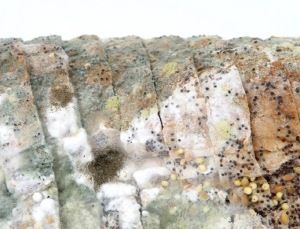News
Engineering firm experimenting with ‘grow your own’ walls
This article is more than 6 years old.
Architects and building engineers are coming to grips with more sustainable ways of building that include using materials in novel ways

The fungus turns Mother’s Pride into something altogether more durable (photo: pixabay)
Most people would agree that modern society produces far too much waste, although we are gradually learning how to recycle and reuse more of it.
A new idea, the brainchild of the building engineering firm Søren Jensen in Aarhus, is to make a material from kitchen waste combined with fungus that is strong enough to be used, for example, in partition walls, reports DR Nyheder.
“There’s no doubt that the building industry itself is one of the major sinners when it comes to much of the waste that is produced and if we look forward a little and at the next generation’s buildings, we must also tackle the materials aspect,” says the firm’s business development head Andreas Castberg.
READ ALSO: Government wants to encourage more recycling in the building trade
New structures from old
The fungus creates a root network that sucks substances out of the rubbish and leaves a material that can be formed and pressed, for example into acoustic tiles or lightweight walls.
“We have lots of biowaste. It could be wood or household rubbish and by allowing fungi to grow in it we simply make new structures,” said Castberg.
“The mycelium eat and break down the structure of wood and reassemble it in this three-dimensional fungal net,” he added.
After a while the substance is dried so that the fungus is no longer viable but by then, the material has obtained lightness and strength.
A prize-winner of an idea
The company has just been awarded a prize in the Realdania Circular Construction Challenge, a worldwide competition to develop new solutions that recycle rubbish into building materials.
“I think we are going to see a whole new way of building over the next 10-20 years because there is a great demand,” said Realdania’s head of projects Simon Kofod-Svendsen.
He pointed out that there are also sound economic motives for thinking in new directions as well as the more obvious environmental ones.
“The companies in those countries that create new solutions making intelligent use of rubbish are going to be winners in the long run,” added Kofod-Svendsen.










































